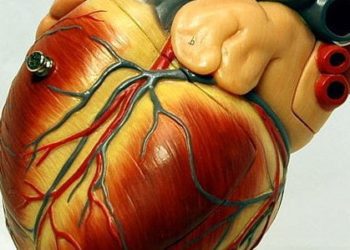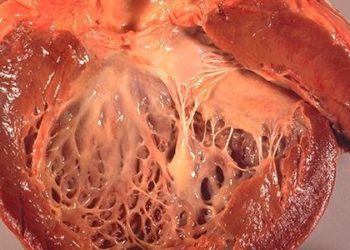Subclinical coronary atherosclerosis is associated with increased risk of myocardial infarction
1. In asymptomatic patients, subclinical coronary atherosclerosis was associated with an eight-fold elevated risk for myocardial infarction (MI).
2. Patients with obstructive and extensive subclinical coronary atherosclerosis had the highest risk of MI.
Evidence Rating Level: 1 (Excellent)
Study Rundown: Subclinical coronary atherosclerosis can precede ischemic heart disease and evolve at an early age, many years before clinical disease develops. In the past, obstructive coronary artery disease, defined as luminal coronary stenosis of 50% or greater, has been shown to be a key feature of elevated risk for MI. With the advent of coronary computed tomography (CTA), it is easier to diagnose obstructive coronary atherosclerosis. However, there is a gap in knowledge as to understanding characteristics of subclinical coronary atherosclerosis that are associated with an increased risk of MI in asymptomatic persons without known ischemic heart disease. Overall, this study found that obstructive subclinical coronary atherosclerosis had the highest risk for subsequent development of MI in asymptomatic, middle-aged persons. This study was limited by participants being mostly White persons of Nordic European ancestry and that patients undergoing coronary CTA tended to have fewer cardiovascular risk factors, higher education level, and higher income class. Nevertheless, these study’s findings are significant, as they demonstrate that obstructive subclinical coronary atherosclerosis is associated with more than an eight-fold elevated risk for MI in asymptomatic patients.
Click to read the study in AIM
Relevant Reading: Contemporary Natural History of Coronary Artery Disease
In-Depth [prospective observational study]: This prospective observational cohort study studied patients in the greater Copenhagen area. Patients who had coronary CTA that were age 40 or older with normal kidney function were eligible for the study. Patients with known clinically manifested ischemic heart disease (defined as either previous clinical diagnosis of myocardial infarction), percutaneous coronary intervention, coronary artery bypass graft, hospital admittance with suspected unstable angina pectoris (within the past ten years before inclusion as recorded in the Danish National Patient Registry), or self-reported chest pain at the time of the study were excluded. The primary outcome measured was MI, as well as a composite of all-cause death or MI. Outcomes in the primary analysis were assessed via Cox proportional hazards regression models. Based on the primary analysis, the risk for MI was increased in persons with obstructive (adjusted relative risk, 9.19; 95% Confidence Interval [CI], 4.49 to 18.11) and extensive (7.65; 95% CI, 3.53 to 16.57) disease. The highest risk for MI was found in patients with obstructive-extensive subclinical coronary atherosclerosis (adjusted relative risk, 12.48; 95% CI, 5.50 to 28.12) or obstructive-nonextensive (adjusted relative risk, 8.28; 95% CI, 3.75 to 18.32). The risk for the composite end point of death or MI was increased in persons with extensive disease, regardless of the degree of obstruction. In summary, these study’s results demonstrate that subclinical obstructive coronary atherosclerosis is associated with an increased risk for MI in middle-aged asymptomatic persons.
Image: PD
©2023 2 Minute Medicine, Inc. All rights reserved. No works may be reproduced without expressed written consent from 2 Minute Medicine, Inc. Inquire about licensing here. No article should be construed as medical advice and is not intended as such by the authors or by 2 Minute Medicine, Inc.









